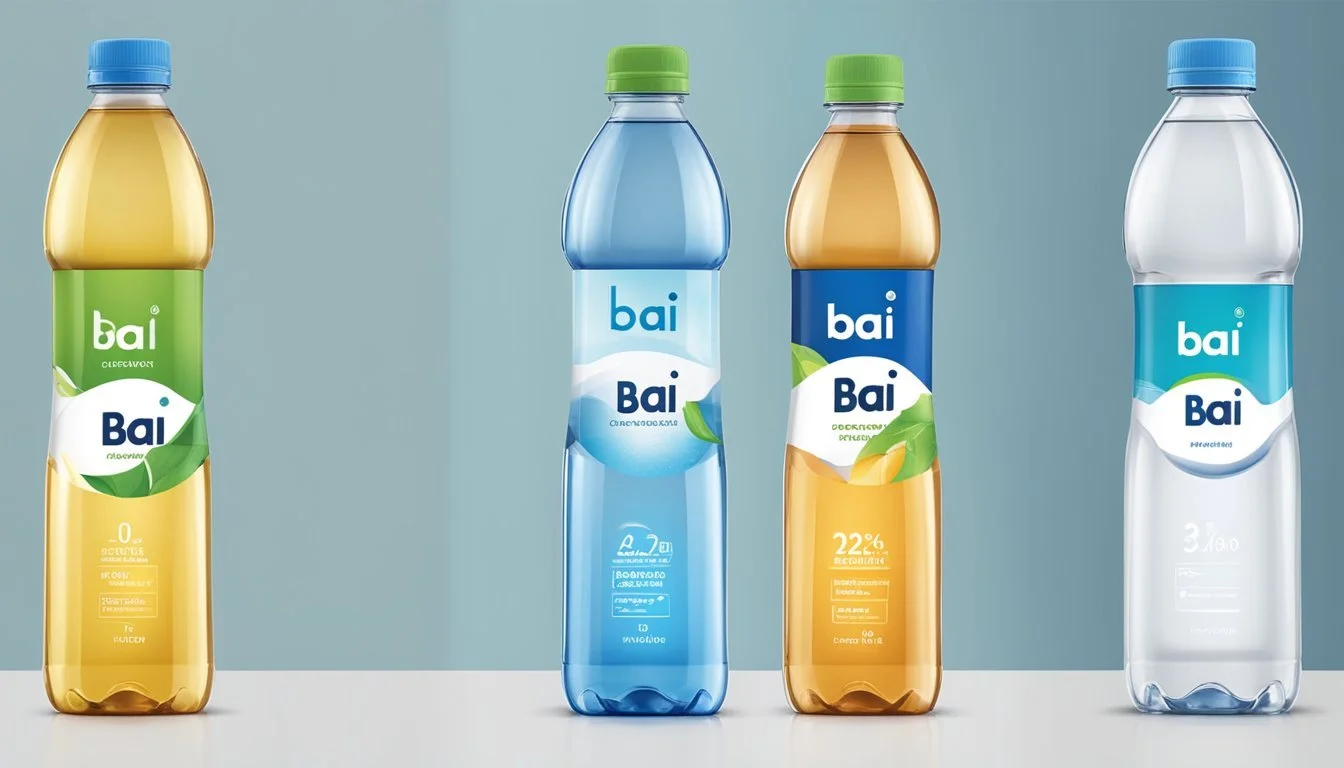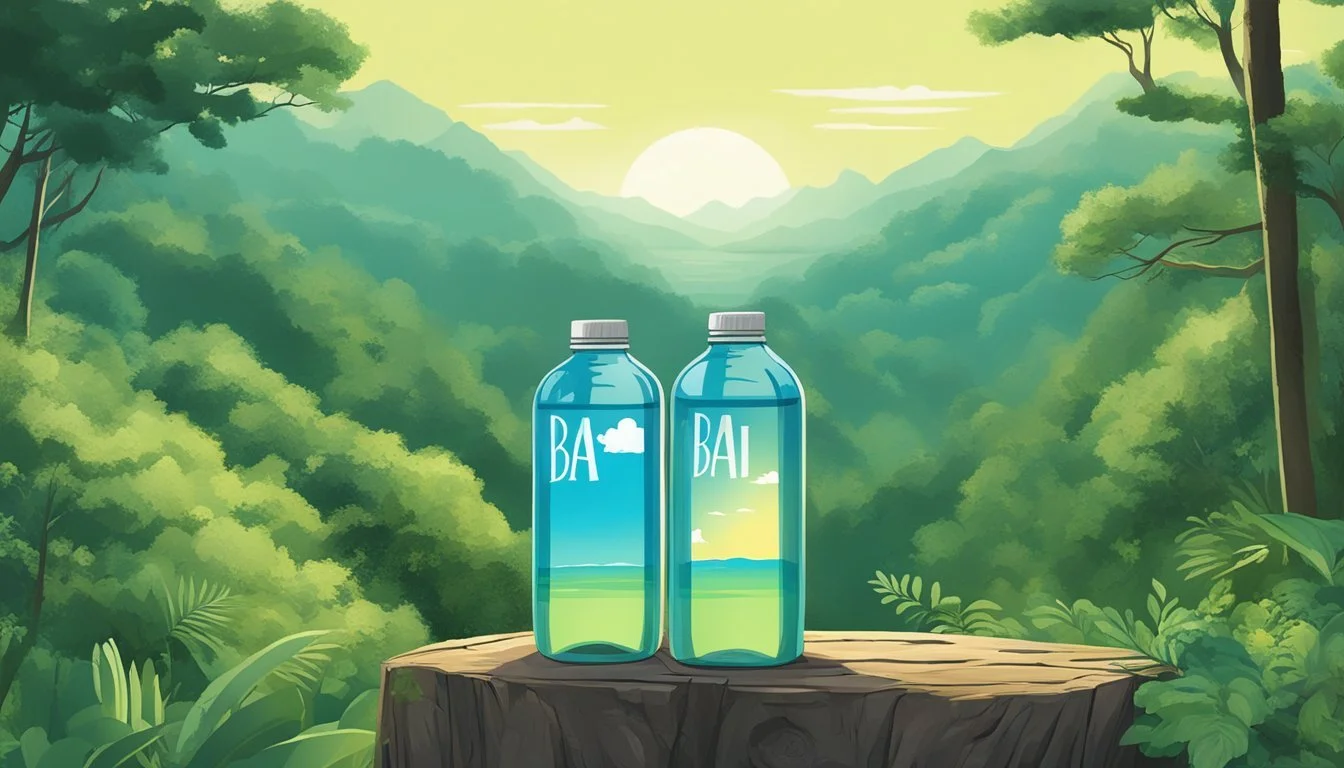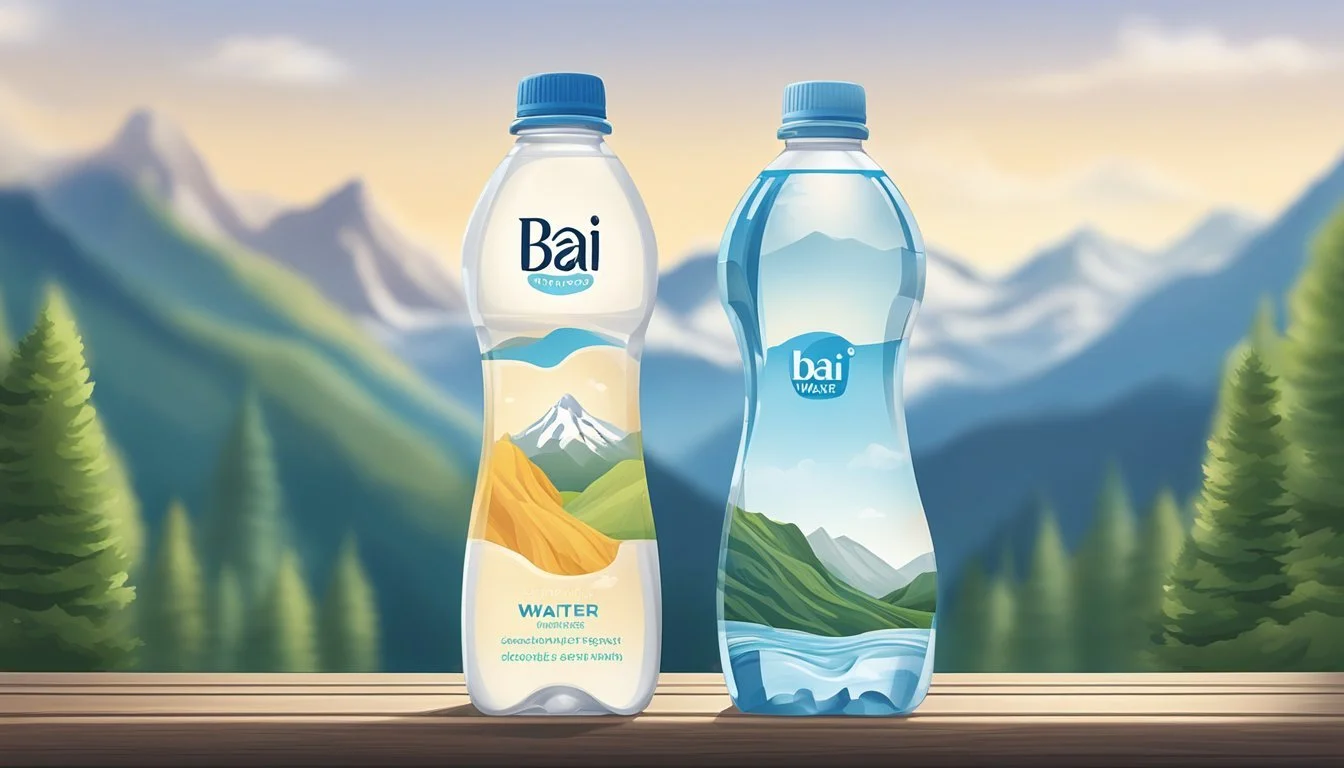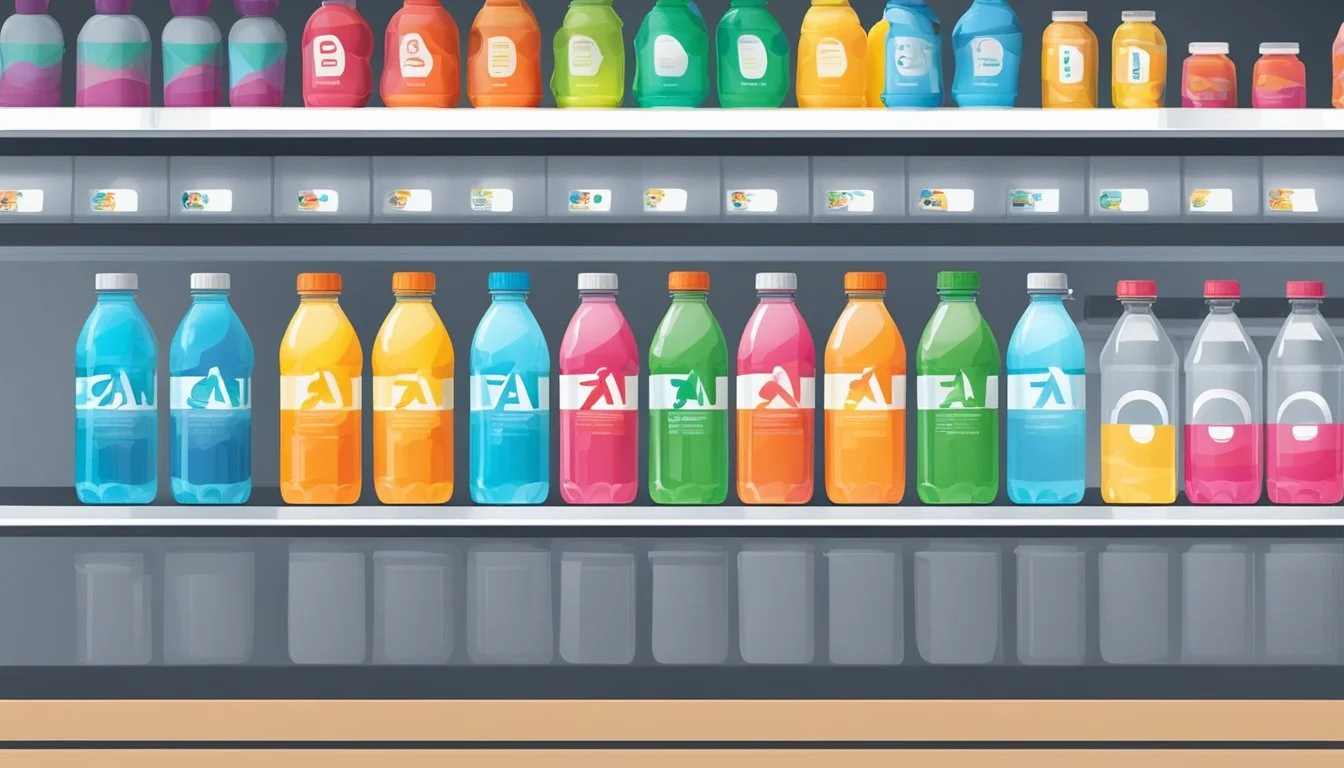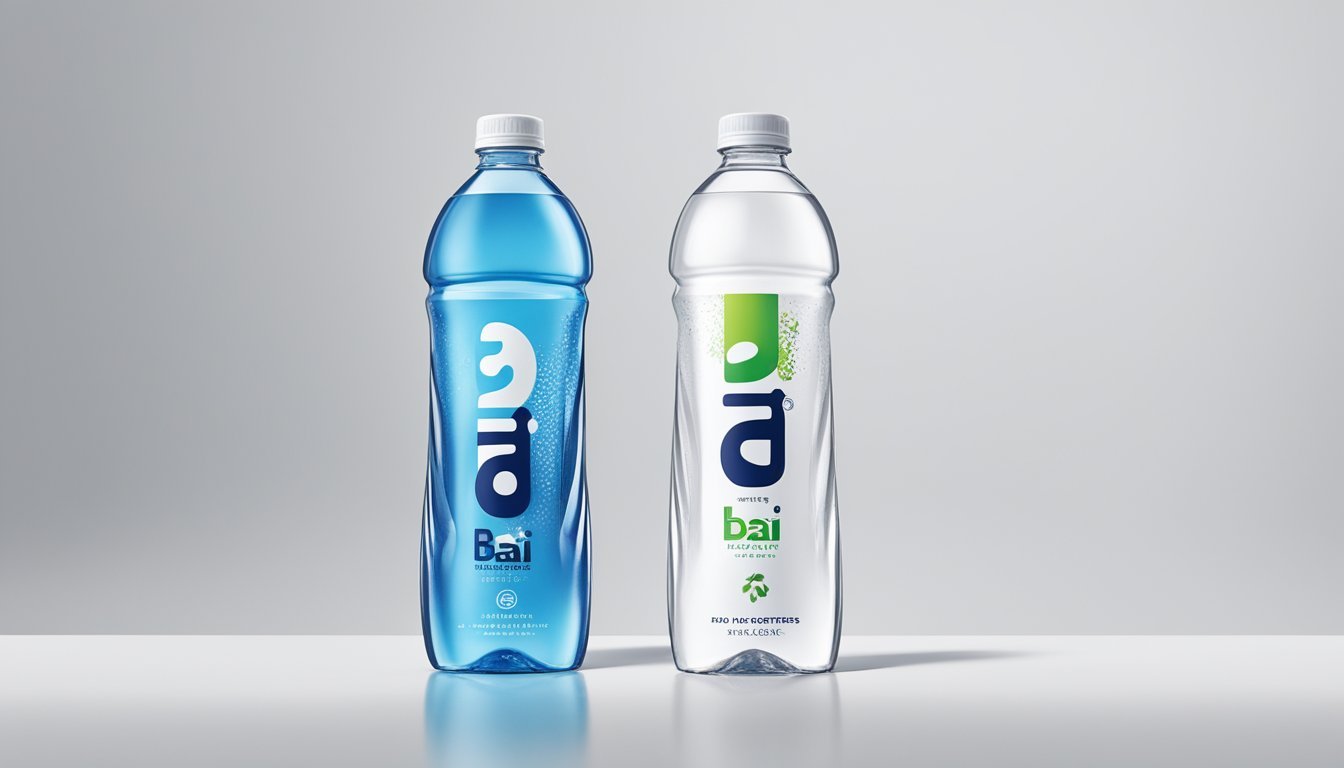Bai vs. Just Water
A Comprehensive Comparison of Bottled Water Brands
Choosing the right bottled water can be a surprisingly personal decision, influenced by taste, nutritional benefits, and environmental impact. Two contenders in this space, Bai and Just Water, each offer a unique proposition. Bai, known for its low-calorie flavored waters that provide antioxidants from coffee fruit and tea extract, offers a taste twist while promising health benefits. Conversely, Just Water prides itself on its environmental ethos, with packaging designed for lower carbon footprint and ethically sourced spring water as its main product.
In examining which bottled water is better, it's crucial to look at various factors such as nutritional content, taste preferences, and the brands' commitment to sustainability. Bai appeals to those seeking added flavor without high sugar content, providing hydration with a mere 1 gram of sugar per bottle. Just Water, targeting the eco-conscious consumer, emphasizes its natural sourcing and responsible packaging. A comparative analysis of Bai versus Just Water involves understanding these brands' approaches to hydration and health, as well as their environmental stewardship.
Both Bai and Just Water have carved out niches: Bai with its fruit-infused, antioxidant-rich beverages and Just Water with its straightforward approach to pure, sustainably packaged water. Consumers' choices may hinge on whether they prefer the functional benefits and flavors offered by Bai or the environmental promise and simplicity of Just Water. The merits of each brand stand out depending on individual priorities, whether it's the pursuit of a healthful drink or contributing to a more sustainable planet with each sip.
Overview of Bai and Just Water
When comparing water brands like Bai and Just Water, consumers typically consider factors such as the brands' history, mission, and the variety of products offered. Both brands have established unique identities in the market, with Bai focusing on antioxidant-infused beverages and Just Water emphasizing environmental sustainability.
Brand Histories and Mission Statements
Bai was founded on the premise of delivering great taste without unnecessary sugars or additives. It positions itself as a brand that provides flavored water beverages that are infused with antioxidants and are low in calories, some containing as little as ten calories per bottle with only 1 gram of sugar. The addition of caffeine from coffee fruit extract and natural flavors aims to bring a health-conscious edge to its drinks.
Just Water is a brand co-founded by Jaden Smith, emphasizing the importance of ethical and sustainable practices. They offer products that are 100% spring water in a paper-based bottle with a plant-based cap, which reflects their commitment to reducing plastic waste and minimizing environmental impact. The company prides itself on sourcing natural water from springs that provide a naturally high pH without the need for additives.
Product Ranges and Varieties
Bai offers a broad range of products under its brand umbrella, which includes Bai Antioxidant Infusion drinks, Bai Bubbles (a sparkling version), and Bai Supertea. Most of their products emphasize zero calories and the lack of artificial sweeteners, catering to health-conscious consumers who also seek flavorful options.
Just Water provides a more streamlined product line focused on delivering pure, high-quality spring water with a high pH. They also offer infused waters with natural flavors but keep their selection intentionally limited to ensure sustainability and simplicity in their offerings.
Both brands present a different approach to bottled water, with Bai infusing theirs with additional health-focused elements and Just Water concentrating on the quality and sustainability of their natural spring water.
Health and Nutritional Comparison
Making an informed choice between Bai and Just Water involves examining their nutritional content, ingredients, and potential health impacts. This comparison will focus on these aspects to help determine which bottled water is a better option.
Nutrient Content Analysis
Bai beverages claim to contain only 1 gram of sugar and 10 calories per bottle, emphasizing their low-calorie nature. Just Water, being pure water, naturally contains zero calories and no sugar. Bai also adds a distinctive feature by infusing antioxidants from coffee fruit extract and vitamins such as vitamin C, which are not present in Just Water.
Bai: 1g sugar, 10 calories, Vitamin C, Antioxidants
Just Water: 0g sugar, 0 calories, No added vitamins or antioxidants
Artificial Additives and Sweeteners
Just Water prides itself on being an all-natural product without any artificial additives or sweeteners. In contrast, although Bai does not use artificial sweeteners, it is sweetened with natural low-calorie sweeteners like erythritol and stevia leaf extract. These sweeteners are considered safe and suitable for those following a vegan diet, yet some consumers might prefer water without any sweeteners.
Bai: Stevia Leaf Extract, Erythritol
Just Water: No Sweeteners
Low-Calorie and Non-Alcoholic Alternatives
Both Bai and Just Water serve as non-alcoholic beverage options, suitable for those looking to maintain a low-calorie diet. Bai's calorie content is minimal, catering to the same health-conscious market as Just Water. Both are gluten-free and vegan-friendly, with no allergens like gluten present.
Bai: Low-Calorie (10 calories per bottle)
Just Water: Zero Calories
Potential Health Benefits and Side Effects
Bai's added antioxidants and vitamin C could potentially offer health benefits, like supporting the immune system. The inclusion of natural flavors might also make it a more enjoyable alternative to plain water, potentially encouraging better hydration. On the other hand, Just Water's lack of additives ensures consumers are drinking water free of potential contaminants, including lead, bacteria, and viruses. There is no evidence suggesting that either brand contributes to heart disease or cancer; however, it is important for consumers to avoid excessive consumption of any sweetened beverages, even ones sweetened with natural low-calorie sweeteners like Bai, to prevent any potential side effects related to sugar intake.
Bai: Antioxidants, Vitamin C, Potential Hydration Appeal
Just Water: Free of Additives, Potentially Lower Contaminant Risk
Environmental Impact and Sustainability
When comparing Bai and Just Water in terms of environmental impact and sustainability, the focus is on their packaging materials, recycling capabilities, and the companies' dedicated policies and initiatives to reduce environmental footprint.
Packaging Materials and Recycling
Bai beverages predominantly use PET 1 plastic bottles, which are widely recognized as recyclable. The company emphasizes that their bottles should be fully recyclable where facilities exist. However, the efficiency of recycling depends on local systems, and plastic bottles can be an environmental concern if not properly recycled.
Just Water takes a different approach, boasting a carton composed of 53% paper, a plant-based plastic cap made from sugarcane, and 28% plant-based plastic for the body of the bottle. Their materials are chosen for their reduced carbon footprint and are 100% recyclable. The paper comes from sustainably managed forests, aligning with a more sustainable use of raw materials and promoting easier recycling.
Brand Environmental Policies and Initiatives
Bai has not been vocal about specific sustainability initiatives, beyond their commitment to providing recyclable bottles. Information on broader environmental impact reduction strategies such as lowering carbon emissions or investing in sustainable sourcing is not prominently featured by the brand.
Just Water differentiates itself with a clear stance on environmental responsibility. They adopt a model that focuses on renewable resources: using paper and plant-based materials instead of traditional plastic. They aim to reduce CO2 emissions from production and secure a lower overall ecological footprint through their packaging and operational choices. Additionally, Just Water partners with cities to establish local sourcing and filling locations to decrease transportation impacts.
Taste Profiles and Water Sources
The discerning consumer often bases their bottled water selection on two essential factors: taste profiles and the sources of water. This section dissects the distinct taste variations offered by Bai and Just Water, and examines the origins of their waters—spring or purified.
Flavor Varieties and Palatability
Bai offers a unique lineup of waters infused with antioxidant-rich ingredients, boasting natural flavors without added sugars. Their selections range from exotic fruit essences to classic coconut, aimed at providing a palatable experience for those seeking a tantalizing twist to their hydration.
Just Water, on the other hand, is known for its pure and simple taste, focusing on the water's quality itself. Their product line includes a few naturally-infused flavors, ensuring that the taste of water remains front and center, with a nod towards users preferring a subtle hint of taste.
Spring Water vs. Purified Water Sources
Bai sources its water from carefully selected springs, priding itself on offering water that contains natural minerals, which can enhance the water taste and make it more palatable. This mountain spring water is typically characterized by a clean and crisp taste profile that is refreshing and satisfying to the palate.
Just Water utilizes spring water as well, but what sets them apart is their commitment to sustainability. They emphasize the use of purified spring water, which is responsibly drawn from a community source. Just Water's objective is not only to provide a pure, high-quality product but also to ensure the long-term health of the water source and the surrounding ecosystem.
Each brand's choice between spring water and purified water reflects in the end product's taste and quality. While Bai leverages the naturally occurring minerals for flavor, Just Water focuses on the purity aspect, catering to those who value a clean and environmentally friendly water choice.
Consumer Experience and Brand Perceptions
When assessing Bai and Just Water, consumer feedback and the brands' visibility and accessibility are pivotal factors in determining which bottled water stands out.
Customer Reviews and Testimonials
Bai: Consumers often praise Bai for its flavored water options, noting the low-calorie count and antioxidant infusion as positive attributes. Testimonials frequently highlight the unique flavor combinations which set Bai apart from other water brands.
Flavor Profile: Bold and distinct, often sparking interest for health-conscious consumers.
Health Benefits: Associated with antioxidants and low sugar content.
Just Water: Testimonials for Just Water focus on its eco-friendly packaging and sustainable sourcing practices. The brand's commitment to reducing plastic waste resonates well with environmentally conscious consumers. Taste-wise, Just Water is often noted for its clean and pure taste.
Packaging: Innovative, made from 82% renewable resources.
Taste: Described as crisp, aiding its position as a frontrunner in the pure-tasting water category.
Market Presence and Availability
Bai: Owned by PepsiCo, Bai has a strong market presence due to the robust distribution channels of its parent company. It is available in major retailers, including Amazon, and is readily found across various stores.
Retail Availability: Online platforms, supermarkets, and health food stores.
Variety: A diverse range of flavors in single bottles and multipacks.
Just Water: While smaller than Bai, Just Water has made significant strides in market presence, securing shelf space in health food stores and big chains. Partnerships with celebrities have bolstered its visibility.
Distribution: Available in select supermarkets, online through Amazon, and in eco-conscious retail outlets.
Recognition: Endorsements from influencers and sustainability awards highlight Just Water's brand values.
Both Bai and Just Water have strong brand perceptions in their respective niches: Bai with flavor innovation and health benefits, and Just Water with environmental stewardship and purity of taste. Availability for both brands has grown due to consumer demand and strategic marketing efforts, making them accessible alongside other popular water brands like Evian, Voss, Fiji, and Smartwater.
Comparison and Buying Guide
Choosing the right bottled water involves considering factors beyond just hydration; taste, nutritional content, price, availability, and pH levels play pivotal roles in informing a buyer's decision. This guide provides a framework to compare Bai and Just Water, elucidating the pros and cons of each brand to assist consumers in making an informed choice.
How to Choose the Right Bottled Water
When selecting bottled water, consumers should assess:
Hydration: Both brands offer effective hydration, but the mineral content can affect absorption rates.
Taste: Taste can vary significantly, often influenced by the source and mineral composition.
Nutrition: Verify sugar content and additives—Bai Water is noted for having 1 gram of sugar and no artificial sweeteners.
Price: Compare prices, as they can reflect factors such as source, production methods, and brand prestige.
Availability: Some brands are regional, affecting nationwide availability.
Pros and Cons: Weighing the advantages and disadvantages, including environmental impact and company ethos, is crucial.
pH Levels: Water with a balanced pH can be more refreshing and is believed by some to offer health benefits.
Pros and Cons of Each Brand
Bai Water:
Pros Cons Low sugar content May have limited availability in some regions Contains antioxidants from coffee fruit and tea extract Higher price point due to added nutritional components No artificial sweeteners or added sugars Gluten-free
Just Water:
Pros Cons Eco-friendly packaging Taste may be plain due to lack of additional flavors Sourced from natural springs May be more expensive than standard bottled waters High pH level, which some consumers prefer Limited availability outside select markets Committed to reducing carbon footprint
Consumers should thoroughly evaluate these aspects when choosing between Bai Water and Just Water, matching their personal preferences and values with what each brand has to offer.
Final Verdict: Bai vs. Just Water
When assessing Bai against Just Water, consumers must consider their priorities, whether it’s flavor, nutritional content, or environmental impact. Bai offers a unique proposition with its addition of antioxidants from coffee fruit and tea extracts. It targets those looking for a beverage with a slight nutritional boost but low in sugars and calories.
On the other hand, Just Water focuses on environmental sustainability with its responsibly sourced spring water and packaging made from renewable resources. It appeals to eco-conscious consumers, although it does not provide the same level of added nutrients as Bai.
Feature Bai Just Water Nutritional Content Antioxidants; low sugar/calorie Minimal; natural spring water Flavor Varieties Exotic flavors; infused with coffee fruit Natural; no added flavors Environmental Focus Standard plastic bottles Renewable, paper-based bottles
Neither brand features in the extreme ends of the "worst to best" spectrum, each having its own distinct qualities. Brands like Zephyrhills and Mountain Valley Spring Water are praised for their source and taste, yet they don’t provide the functional additives of Bai or the same commitment to sustainability as Just Water.
In conclusion, if one desires a drink with added benefits and doesn’t mind the absence of pure spring water, Bai is a suitable choice. Conversely, if environmental impact and natural water are primary concerns, Just Water stands out as the better option. The decision ultimately rests on individual values and requirements.


